Payment processing company works like a bridge between the buyer (customer) and the seller (merchant) to carry out the transaction process securely and without much hassle.
A payment processing company verifies the funds, authorizes the transactions, and ensures that money moves safely from the buyer to the seller by all regulations and compliance.
According to Precedence Research, the global payment processing solutions market will likely be worth over USD 632.18 billion by 2032.
Features like PCI compliance, fraud prevention, recurring billing, reporting, analytics, invoicing, notification, and integration with accounting software to consider when selecting an online payment processor. Businesses dealing with global transactions might also look into Global Payment APIs, which enable them to streamline cross-border transactions seamlessly.
Some of the best payment processing solutions are Stripe for an omnichannel experience, Square for a user-friendly third-party payment processor, Clover for a customer-centric approach, and finally, the stalwarts of online payments—PayPal and Shopify Payments—for integration with the Shopify platform to enhance the end-customer checkout experience.
The following expert guide will help you make your decision-making process easy to select the best payment processor company for your business.
- 1. Stripe – Best Overall
- 2. Stax – Best for High-Volume Payments
- 3. Square – Best for Analytics of Payments
- 4. Clover – Best for POS Hardware
- 5. Shopify – Best for E-commerce Payments
- 6. PayPal – Easiest to Use
- 7. WePay – Best for Enterprise
- 8. BlueSnap – Best for Global Payment
- 9. Helcim – Best for Interchange Pricing
- 10. HubSpot Payments – Best for B2B Sales
- 11. Braintree – Best for Online Marketplaces
- 12. Adyen – Best for Global Expansion
- 13. Chase Payment Solutions – Best for Banking Integration
- 14. Skrill – Best for International Transfers
- 15. GoCardless – Best for ACH Pull Payments
- Show less
You can trust Geekflare
At Geekflare, trust and transparency are paramount. Our team of experts, with over 185 years of combined experience in business and technology, tests and reviews software, ensuring our ratings and awards are unbiased and reliable. Learn how we test.

Stripe
Best Overall
- Supported Currencies135+
- Payment Methods100+
- Customer SupportEmail and Chat
About Stripe
Stripe is the best overall payment processor company in the current market. Its ease of integration, flexible features, and global reach make it a force to reckon with against competitors. The platform ensures safe transactions, complies with PCI DSS security standards, and offers remarkable developer tools and customer support.
US-based Stripe, founded in 2010, boasts 200k+ customers & $14B in revenue in 2022.
It’s no wonder that startups and Fortune businesses like Amazon, Shopify, Airbnb, Zoom, Uber, etc. use Stripe for online payments, payouts, and financial management to offer a world-class user experience and ultimately boost revenue.
Built-in optimizations from Stripe help improve conversion for any industry business of all sizes, thanks to over 100 payment methods like credit cards, bank transfers, wallets, buy now, pay later, etc., to choose from.
It offers customizable UI components for a secure payment experience that increases conversions. Stripe PCI DSS and advanced encryption techniques help businesses prevent fraudulent activities.
Stripe Features
Prebuilt payment form to directly embed on your site with customization
Unified dashboard at your fingertips on iOS and Android
450+ automated platform extensions
Developer-friendly API to enable quick setup, maintenance, and integration
Stripe Pros and Cons
Coverage across 195 countries
Revenue and finance automation
Supports 135 currencies like USD, AUD, EUR, GBP, AED, etc.
No-code invoicing and payment links
Carbon removal contribution opportunities
Supports only specific Merchant Category Codes (MCCs) for businesses processing card payments
Charges a fee for dispute and chargeback
People often complain about account termination with minimal justification
USD payout is not feasible in some countries like the UAE, India
Stripe Payment Processing Fees
| Payment Type | In-person | Online |
|---|---|---|
| Domestic | 2.7% + 5¢ | 1.5% + 20p |
| International | – | 2.5% + 20p |
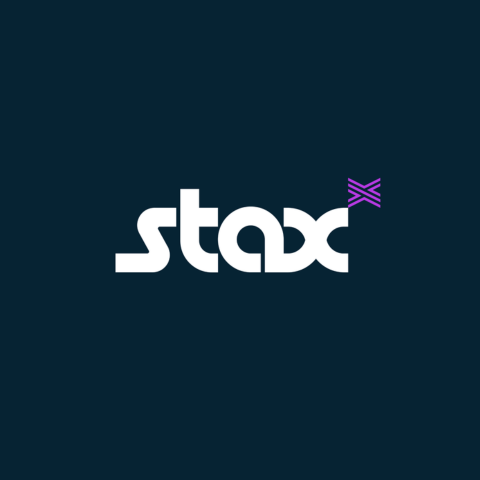
Stax
Best for High-Volume Payments
- Supported CurrenciesMajor
- Payment MethodsCards, Contactless, Mobile
- Customer SupportPhone and Live Chat
About Stax
Stax is a comprehensive payment platform that offers secure and customizable solutions to help businesses scale effectively. Its flat subscription model, which is a fixed fee, works great for high-volume payments.
Stax Payments (Orlando, US) was founded in 2014. It has 22k+ customers and achieved 996% revenue growth in 3 years, reaching $61.7M in 2021.
Whether you are a small or large business owner looking to grow your revenue streams, trust Stax’s industry-leading tools, such as cloud-based terminals, professional invoicing, contactless payment methods, etc., to simplify the payment experience. With Stax, you can eliminate the burden of managing multiple vendors as its unified platform integrates various platforms for streamlined payment processing, automated billing, and surcharging compliance.
Stax takes pride in offering an all-in-one payment platform where merchants accept payments anytime, anywhere, through one convenient dashboard.
It is a SaaS platform for healthcare, field service management, e-commerce, education, nonprofits, and more. Stax has volume-based pricing and starts at $99 per month for up to $150,000/year processing.
Stax Features
Safeguard profiles and automate payments.
Manage in-person, online, ACH, and mobile payments through API
Contactless payments like Google Pay, Apple Pay, touch terminals, Text2Pay
Customizable invoicing
Stax Pros and Cons
Automated billing and payment solutions for optimal efficiency
Efficient pricing and low fees with a transparent subscription model
The flat-rate subscription covers all your payment processing needs with no markups
Doesn’t offer its own POS (point of sale) hardware
Limited to US-based merchants
A flat subscription fee may not be suitable for new business
Stax Payment Processing Fees
| Payment Type | In-person | Online |
|---|---|---|
| Domestic | 0% + 8¢ | 0% + 15¢ |

Square
Best for Analytics of Payments
- Supported CurrenciesMajor
- Payment MethodsCards, Contactless, Mobile
- Customer SupportEmail, Phone and Live Chat
About Square
With a strong footprint in the financial services industry, Square offers an extensive range of payment processing solutions. Through both hardware and software capability, Square’s innovation comes with features such as Square Analytics, where the system gives sales and customer reporting in real time.
Founded in 2009 (US), Square empowers 4M+ sellers & achieved $1.71B gross profit in Q1 2024, with 32% YoY growth
Square Payments helps businesses to accept payments from customers through point-of-sale (POS), in-person, online, remote, and buy now, pay later, and popular choice for retail, fitness, bar, saloon, and restaurant businesses. Square accepts contactless payments through cards or mobile. It’s easy and fast setup, hence straightforward for a business to get started on receiving payments.
Square Features
World-class security with advanced encryption, ISO 27001 certification, and PCI compliance
Uses cutting-edge machine learning technology for multichannel payment processing
Real-time transaction monitoring to prevent fraudulent activities
Dispute management services to ensure smooth transactions
Square Pros/Cons
Tiny POS hardware
Telephone support
Inbuilt business intelligence software for quick insights & advanced sales reports
Higher fees for high-volume transactions
Additional cost for add-ons like invoicing
Square Payment Processing Fees
| Payment Type | In-person | Online |
|---|---|---|
| Domestic | 2.6% + 10¢ | 2.9% + 30¢ |
| Buy Now, Pay Later | 6% + 30¢ | – |
| ACH Direct Debit | – | 1% |
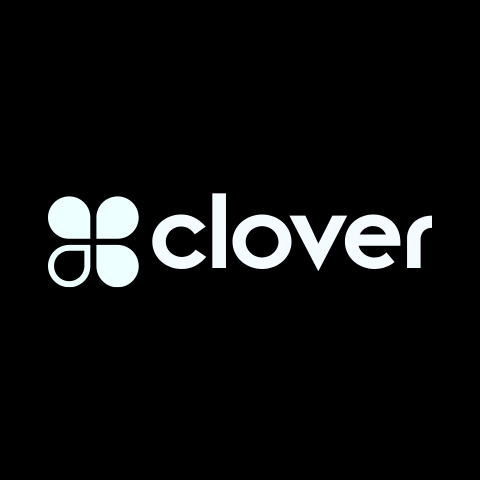
Clover
Best for POS Hardware
- Supported CurrenciesMajor
- Payment MethodsCards and Contactless
- Customer SupportPhone and Email
About Clover
Clover is the most comprehensive point-of-sale (POS) system designed to revolutionize the way small businesses accept payments. With a range of POS devices and accessories, including hardware, online ordering software, gift cards, and an innovative mobile app – Clover offers convenience like never before.
Clover (Sunnyvale, CA), founded in 2011, generated $600M in revenue in 2022.
Clover Flex POS is a portable handheld device for accepting payment on the go, which is very helpful to restaurant, retail, or service industry businesses. Clover offers real-time sales data and reports to help with decision-making. Besides payment processing, the Clover system can be used for managing business operations.
The multipurpose Virtual Terminal enables the processing of cards and contactless payments from anywhere—in-store or on the go, personally or over the phone. Clover’s pricing structure varies based on the industry, with transaction fees starting at 2.3% +10 cents.
Clover Features
Inventory management and customer loyalty programs
Easy integrations with other business software like Xero, QuickBooks, DocuSign, WooCommerce, etc.
On-demand money with Clover Rapid Deposit
Clover Pros and Cons
Fraud protection up to $100,000
Next-day bank account funding
Maximize offline sales post reconnection
Subscription plans require a contract commitment, which can be a drawback for businesses seeking flexibility.
Upfront hardware cost, which is a significant investment
Clover Payment Processing Fees
| Payment Type | In-person | Online |
|---|---|---|
| Domestic | 2.3% + 10¢ | 3.5% + 10¢ |

Shopify
Best for E-commerce Payments
- Supported Currencies100+
- Payment MethodsCards, Contactless, Mobile
- Customer SupportEmail, Chat and Phone
About Shopify
Shopify Payments is an inbuilt payment solution for Shopify e-commerce stores. This is a great option for businesses selling through the Shopify platform, and you don’t have to worry about integrating with third-party payment platforms.
Ottawa-based Shopify (est. 2006) serves millions of e-commerce websites like Gymshark, Crate&Barrel, and Leesa, reaching $1.5B in revenue (Q1, 2023).
You can turn on payments for your Shopify store to start receiving payments instantly through cards. It tracks orders and payments in one place and prevents fraudulent transactions.
Shopify Features
PCI-compliant payment and 3D secure checkouts
Inbuilt portal to process payments
Shopify Pros and Cons
One button to turn on payment
Supports 133+ global currencies
Not available in countries like Malaysia, India, China, Brazil
Account can go on hold for many reasons
Shopify Payment Processing Fees
| Payment Type | In-person | Online |
|---|---|---|
| Domestic | 1.7% + 0p | 2% + 25p |
| ACH Direct Debit | – | 2% |

PayPal
Easiest to Use
- Supported Currencies25+
- Payment MethodsCards and Mobile
- Customer SupportPhone and Community Forums
About PayPal
PayPal is best for easy-to-use payment solutions. You can receive payment on your website or store, and what’s the easiest way to receive money through email.
PayPal was founded in 1998, and more than 400 million people use PayPal for personal and business payments.
PayPal has revolutionized the way we make payments through email. The best part is that there are no fees to send payments from one PayPal to another PayPal. Receive or send money through email. It offers touch-free PayPal payments in person with customized QR codes.
In countries like the USA, UK, and UAE, you can use PayPal as a wallet to keep your money, whereas in India, the transfer of funds to your local bank account is automatically completed at the end of the business day.
With no monthly or startup fees, PayPal charges a transaction fee of only 2.89% + $0.49 per online credit/debit card payment.
PayPal Features
AI-powered fraud prevention
Quick onboarding and easy-to-use features
Integration with accounting and billing systems like Recurly, Chargebee, QuickBooks, opencart
PayPal Pros and Cons
Support 25 currencies from over 200 markets
International transactions are processed almost immediately
Manage your money through the PayPal mobile app
Inbuilt invoicing for faster payments
Card processing fees are higher compared to Stripe
Can freeze funds for months for violating terms and conditions
Very high currency conversion fees for international transactions compared to Wise or Revolut
PayPal Payment Processing Fees
| Payment Type | In-person | Online |
|---|---|---|
| Domestic | 2.29% + 9¢ | 2.59% + 49¢ |
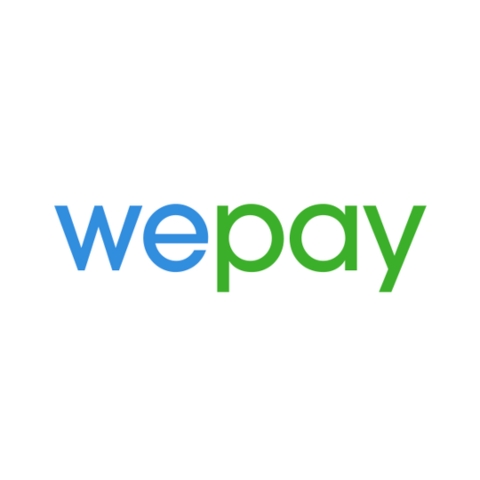
WePay
Best for Enterprise
- Supported CurrenciesMajor
- Payment MethodsCards and Mobile
- Customer SupportEmail and Live Chat
About WePay
WePay is among the most reliable and secure online payment service providers to large enterprises owned by JPMorgan Chase. It has a robust payment gateway and tailored API, which is a great deal with secure, fraud-resistant revenue growth through online transactions.
Whether working with referral partners or acting as a full-fledged payment facilitator, WePay has the tools and places to support you every step of the way.
It also engages streamlined processes, instant onboarding with same-day deposits, transparent pricing options, and flexibility in card acceptance. They have even included KYC processes for swift merchant onboarding so that businesses can initiate accepting payments promptly.
Its Partner center comes with advanced reporting and never-before-seen support services and customization. It is a perfect solution for large SaaS providers, ISVs, and crowdfunding platforms. Also, it integrates with J.P. Morgan’s banking system. WePay offers transparent pricing starting at 2.9% + 25¢ per transaction.
WePay is based in the United States, and 50% of U.S. online transactions are processed by them.
WePay Features
PCI-DSS Compliant platform
Free same-day deposits for payouts, easy and flexible
All sensitive data remain safe with advanced encryption technology
WePay Pros and Cons
Developer-friendly APIs
Instant onboarding
Covers fraud and chargeback loss
Not suitable for small businesses or startups
Restricted international functionality
No phone support
WePay Payment Processing Fees
| Payment Type | Online |
|---|---|
| Domestic | 2.9% + 30¢ |
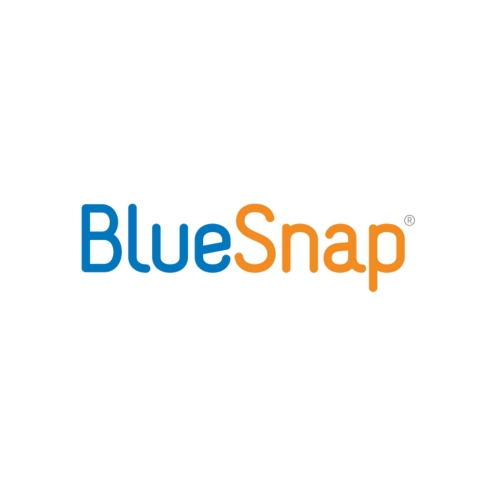
BlueSnap
Best for Global Payment
- Supported Currencies100+
- Payment MethodsCards, Contactless, Mobile
- Customer SupportEmail, Phone and Live Chat
About BlueSnap
BlueSnap modernizes global payments with its comprehensive payment platform and expertise. Its modular technology allows businesses to maximize their return on investment by providing a one-stop solution for all payment needs globally.
BlueSnap was founded in Massachusetts, USA, in 2001, with an estimated annual revenue of $44.9 million.
With a single contract and account, businesses can gain a wide range of payment options and the ability to process transactions from multiple countries. BlueSnap simplifies your global payment processing in over 200 regions so you can focus on growing your business.
Its solid focus on ROI has garnered the loyalty of numerous clients such as Monday.com, Ford, Outbrain, TitanHQ, Namely, etc. Customize your payment processing with Bluesnap’s white-label solutions for a strong brand identity.
The ability to integrate with CRM like HubSpot, e-commerce like Magento, and accounting like Sage makes BlueSnap a preferred choice for global business.
BlueSnap Features
Cross border payments
Automated billing and accounting processes
Embedded payments
BlueSnap Pros and Cons
Supports 100+ currencies and 100+ payment types
Fraud prevention
Unified reporting
Learning curve can be complex for small businesses
Some users on BBB have reported not receiving timely customer support
BlueSnap Payment Processing Fees
| Payment Type | In-person | Online |
|---|---|---|
| Domestic | – | 1.4% + 20p |

Helcim
Best for Interchange Pricing
- Supported CurrenciesMajor
- Payment MethodsCards and Contactless
- Customer SupportEmail and Phone
About Helcim
Helcim provides an affordable and easy way for small businesses to accept card and ACH payments. Helcim smart terminal has an in-built POS, receipt printer, and staff login.
The company was founded back in 2006 as a reputable payment processor headquartered in Canada. Helcim’s customer base includes thousands of businesses in the US and Canada. According to some resources, Helcim’s annual revenue in 2023 was $38 million.
The Helcim pricing model adheres to the interchanges-plus model – pays only a fixed fee per transaction along with the standard interchange fees charged by major card networks and ensures transparent pricing.
Helcim is easier and more affordable for your businesses to accept Amex cards, and you only pay for the transactions you process at no additional cost. It also allows you to set recurring payments.
Helcim Features
Accept payments online through a virtual terminal, invoices, payment page, and payment hardware card reader
Advanced online checkout reporting tools to monitor performance, inventory, and top products
Quick onboarding to get your business operational at the earliest possible
Helcim Pros and Cons
Data Security and Compliance
No monthly fee or contract of commitment
Turn ON Helcim Fee Saver and pay 0% on credit card processing fees
Limited global presence
Lack of integration with third-party applications
Helcim Payment Processing Fees
| Payment Type | In-person | Online |
|---|---|---|
| Domestic | 1.83% + 8¢ | 2.27% + 25¢ |

HubSpot Payments
Best for B2B Sales
- Supported CurrenciesMajor
- Payment MethodsCards and Mobile
- Customer SupportEmail and Chat
About HubSpot Payments
In today’s fast-moving world of business, keeping money moving into your account through paid on time is key. That is where HubSpot Payments comes in. This solution facilitates receiving payments from your clients and sharing the links to generate major credit, debit, or ACH payments with them through email or other modes without needing to have a website.
This saves time, and more importantly, it streamlines interaction because emailing can include secure payment options as well as web forms and meeting notes, all within the customer interaction. Added convenience, integration with Smart CRM brings easy switching instead of the constant need to switch from many tabs and tools during online transactions.
HubSpot was founded in 2006, and the company reported an annual revenue of $1.3 billion in 2021, with more than 110,000 paying customers in over 120 countries.
You only pay a 2.9% fee for credit card transactions and 0.5% for ACH payments.
HubSpot Payments Features
PCI-DSS compliant and built-in fraud prevention system
HubSpot Payments tightly integrates with the HubSpot CRM
Secure online invoicing
HubSpot Payments Pros and Cons
Centralized platform for customer data management
Powered by Stripe payment infrastructure
Automation of recurring activities
Restricted to support all business types
Features like automation and custom billing require an additional subscription
HubSpot Payment Processing Fees
| Payment Type | In-person | Online |
|---|---|---|
| Domestic | Flat 2.9% | – |
| ACH Direct Debit | – | 0.5% |

Braintree
Best for Online Marketplaces
- Supported Currencies130+
- Payment MethodsCards and Mobile
- Customer SupportEmail and Phone
About Braintree
PayPal Braintree is a multi-faceted payment processor backed by PayPal. Braintree is best for online marketplaces and global e-commerce shops to accept web and mobile payments. The platform allows businesses to effortlessly accept and process multiple forms of payments, including cards, PayPal, Venmo, Apple Pay, and more – all through one simple integration.
Globally noted companies like Airbnb, Dropbox, GitHub, and Uber rely on Braintree to process their payments.
The headquarters in Chicago, Braintree, was established in 2007. Many of its clientele (64.90%) are from the US, with the UK and Australia following at 17.28% and 5.44%, respectively. Braintree’s revenue is reported to be $316.4 million.
Braintree offers top-notch data security level 1 PCI compliance, data encryption, session management, and activity monitoring to protect customer data, and 3D security for fraud protection. Integrate with third-party platforms to ease analysis, billing, and e-commerce operations.
It combines multiple gateways for maximum efficiency and cost savings. Also, it integrates payments in mobile apps through SDKs.
Braintree Features
Enhanced fraud protection for swift identification
Integrate quickly and easily with Drop-in UI
Robust reporting with key insights
Braintree Pros and Cons
Supports the majority of the countries
Offers a flexible API to manage payments programmatically
Provision for Recurring billing
Fees are slightly higher compared to Stripe and Stax
Limitations in customer support accessibility and response times
Braintree Payment Processing Fees
| Payment Type | In-person | Online |
|---|---|---|
| Domestic | – | 1.9%+20p |
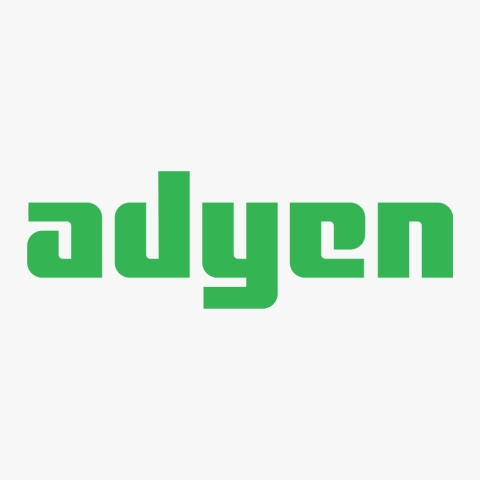
Adyen
Best for Global Expansion
- Supported Currencies187+
- Payment MethodsCards, Contactless, Mobile
- Customer SupportEmail and Phone
About Adyen
Adyen is best for businesses expanding globally to accept payments, optimize revenue, and manage finances.
Adyen, a Dutch payment company founded in 2006, powers payments for over 2,976 companies globally. The United States leads the charge with 36.21% of Adyen’s clients.
With the help of world-class security technology by Adyen, onboarding and user verification is easy. Every beneficiary should pass through strict security validation before any payout is processed. It has a fraud detection feature powered by machine learning.
Adyen has complete control over payment flow for improved rates and reduced fees. Business gets a real-time notification of the customer onboarding process.
Adyen has a straight-to-the-core and cheap solution that is fee-bundled and paid in each transaction without any setup or monthly fees. For example, in the UK, the BACS Direct Debit is credit card payment fee is €0.11 + £ 0.55.
Adyen Features
PCI and PSD2-compliant platform
Robust identification and verification checks to prevent transactional risks
Centralized Console to keep track of end-to-end transactions
Adyen Pros and Cons
Lower transaction charges due to interchange fees
More than 100 payment methods, including WeChat Pay, Alipay, Amazon Pay
Prevents fraudulent transactions through advanced machine-learning techniques
Support limited countries and regions
The pricing model is variable, so knowing upfront costs is challenging
Adyen Payment Processing Fees
| Payment Type | In-person | Online |
|---|---|---|
| Domestic | – | €0.11+4.19%+30p |
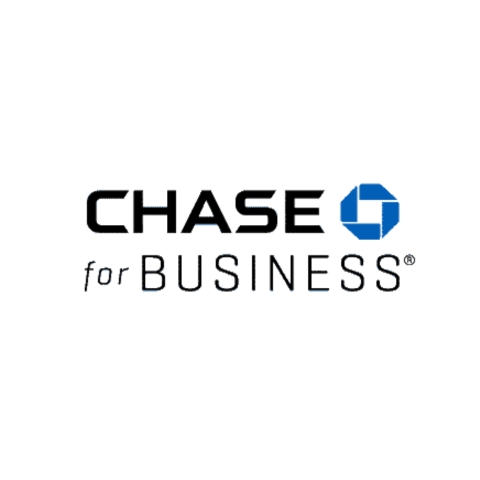
Chase Payment Solutions
Best for Banking Integration
- Supported CurrenciesMajor
- Payment MethodsCards and Contactless
- Customer SupportPhone and Online Resources
About Chase Payment Solutions
Chase Payment Solutions, a division of JPMorgan Chase, is best for integrating with other bank products. Whether you need to accept payments in person for your restaurant, professional services accept credit card payments online on your e-commerce store or accept from mobile through a card terminal, and Chase covers everything. It provides better cash flow because of same-day fund deposit
Chase helps to transform your mobile device into a complete POS solution.
Formed in 2000, JPMorgan Chase has over 5 million clients, built upon the legacy of merged giants.
Credit card processing rates are transparent, with no hidden or monthly fees. Enjoy competitive pricing of 2.6% + 10 cents for dip, swipe, and tap transactions, including Tap to Pay on iPhone. For manual transactions and payment links, Chase charges 3.5% + 10 cents.
Chase Payment Solutions Features
Effortlessly accept payments anywhere in the U.S. with QuickAccept
Easy integration with the Chase Banking system
Set up a single payee or a group for ACH and real-time payments
Chase Payment Solutions Pros and Cons
Real-time monitoring and alerts
Tap-to-pay on iPhone
Inbuilt business intelligence with analytics
Telephone support
Limited to only U.S. jurisdiction
Point of Sale (POS) app and Mobile app are available for select mobile devices
Chase Payment Processing Fees
| Payment Type | In-person | Online |
|---|---|---|
| Domestic | 2.6% + 10¢ | 3.5% + 10¢ |
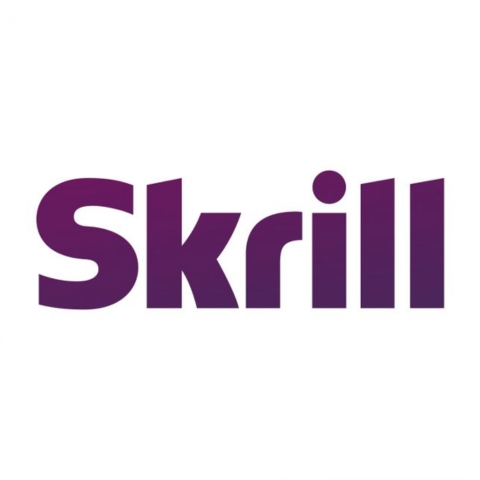
Skrill
Best for International Transfers
- Supported Currencies40+
- Payment MethodsCards and Mobile
- Customer SupportEmail and Live Chat
About Skrill
Skrill is best for international payment and is popular among freelancers, digital businesses, and startups. Skrill is often compared with PayPal, where both offer zero fees for transfers between two parties within the network.
For example – sending and receiving payment from one Skrill account to another is free.
Skrill’s headquarters is in London, and its parent company, Paysafe, generated $1.496 billion in revenue in 2022.
Receiving funds instantly while enjoying chargeback protection makes Skrill an indispensable tool for global business expansion. It provides swift cross-border payment in minutes.
Skrill Features
Hosted payment checkout solution
Digital wallet to manage payments through email
Skrill Pros and Cons
Local payment methods are supported in all the regions. Ex 7Eleven in Mexico, Giropay in Germany, Alipay in China, NetBanking in India
Pay zero fees if your business payment is between the Skrill network
Higher exchange rate if you are dealing in foreign currency
Must have a functional website with a privacy policy, terms of service, and contact details to open a Skrill business account
Skrill Payment Processing Fees
| Payment Type | In-person | Online |
|---|---|---|
| Domestic | 3.99% | – |

GoCardless
Best for ACH Pull Payments
- Supported CurrenciesMajor
- Payment MethodsLimited
- Customer SupportEmail and Phone
About GoCardless
GoCardless is best for ACH to pull payments that eliminate the card payment fees, which can help you save up to 56%.
Founded in 2011, London-based GoCardless serves 85,000+ businesses globally.
GoCardless makes sense for small to enterprise SaaS, service-based businesses where you need to collect recurring payments at low cost. It accesses customer’s bank account data across the UK and Europe to make better decisions. Also, it collects subscription payments automatically.
GoCardless has three pricing plans:
1. Standard – 0.5% + $0.05 per domestic transaction
2. Advanced – 0.75% + $0.05 per domestic transaction
3. Pro – 0.9% + $0.05 per domestic transaction
GoCardless Features
Automated payment collection to withdraw funds directly from customers’ bank accounts
Maximizing Failed Payment Recovery with Automatic Retries
Payment reconciliation
GoCardless Pros and Cons
Best for direct debit payment
Exchange rate is powered by Wise for international payment
Cheaper than Stripe for domestic transactions
Supports only 8 currencies
Additional fees for fraud protection
Fees applicable for payment failure and chargeback
GoCardless Payment Processing Fees
| Payment Type | In-person | Online |
|---|---|---|
| Domestic | 0.5% + 5¢ | – |
| International | 1.5% + 5¢ | – |
What does Payment Processing Service mean?
Payment processing is the facilitation between customers and merchants for online payment solutions. It is an intermediary payment provider between the buyer, seller, and financial institutional parties to build the platform for electronic domestic and international payment.
Payment processing services are a very crucial element for online and electronic transactions to take place. They manage credit/debit card processing online, other digital wallets such as bank transfers, and much more.
A payment processor has to perform a lot of work in the background to complete a successful and secure transaction. The steps carried out are verification and authorization for the transactions and settlements of payments among parties involved with the transactions.
The below expansion of evidence shows further efforts to move along with trends as well as keep in touch with transaction safety and control challenges as well as technologies.
The first solution for online payment processing began in the 1970s, although the first system was commercially launched into the market during the 1990s. CrediCards (history dates back to 1950), CyberCash (1994), First Virtual (1995), and PayPal (1998), among other major payment methods, all came into being in this decade. In the latter decade, advanced security measures, encrypted transactions, internet banking, and payment gateways emerged to shape the evolving field of digital transactions. Today, AI and device fingerprinting expand evidence in catching fraudsters across platforms.
Laws governing online payment processing
Legally, the undertakings for processing payment services include contractual agreements among the processors, merchants, and customers covering the terms of service, fees, data security, privacy, and dispute resolution.
Those form part of financial regulations that guarantee and secure the process of transactions within financial systems, safeguarding the rights of consumers, such are Nacha or National Automated Clearinghouse Association managing the ACH Network, the PCI DSS and the U.S. Electronic Funds Transfer (EFT) Act. For instance, GDPR in the EU and CCPA enforced privacy laws enjoin data privacy to outline rules regarding the use of customer information.
Other norms like Know Your Customer (KYC) and Anti-Money Laundering (AML) additionally require verifying customers’ identity and monitoring their transactions to prevent financial crime.
Over the years, payment processing services have sought to make customers a priority, reflecting technology developments, security concerns, and some economic factors. As secure savings become more important, speedy payment has taken a back seat. Customers now juggle cost, convenience, and safety, demanding secure transactions minus high fees. Payment processors navigate this changing landscape to keep customers satisfied.
What are the Types of Online Payment Systems?
Online payment types include cards, bank transfers, digital wallets, contactless, BNLP, POS and cryptocurrencies.
- Debit and credit cards (most popular, globally)
- Bank transfers (most popular, globally)
- Digital Wallets (most popular among smartphone users)
- Contactless (getting popular, globally)
- ACH transfers (most popular in the US)
- Buy Now, Pay Later (BNPL) (getting popular for e-commerce)
- Point-of-sale (POS) Systems (most popular in restaurants and professional services)
- Cryptocurrencies (getting traction in countries like Singapore, Japan, UAE, and Germany)
What are the Types of Payment Gateways?
Hosted, self-hosted, API-hosted, local bank integration are the primary types of payment gateways.
- Hosted payment gateway: Hosted payment gateways are the most user-friendly option, where customers are redirected to the payment gateway’s secure page to enter the payment details.
- Self-hosted payment gateway: Self-hosted payment gateways collect payment information directly on the merchant’s website.
- API-hosted payment gateway: Developer-friendly, offers flexibility and full control to customize the experience however you like on your website, applications and mobile apps.
- Local Bank integration gateway: Integrates directly with your local bank’s system, often used for regional payment methods.
What are the Best Credit Card Processing Companies?
The following 6 are the best credit card processing companies:
- Stripe: Best overall for online business and omnichannel payments.
- Square: Best for mobile transactions and payment analytics.
- Helcim: Best for interchange-plus pricing and POS needs.
- Stax: Best for high-volume sellers.
- PayPal: Best for small businesses.
- Shopify: Best for Shopify e-commerce shop.
Regular online payment systems vary a lot from the credit card processors. While both are involved in transaction processing, payment authorization, and verification, in particular, only credit card processors have an important focus on settlement and chargeback management.
This is in opposition to regular online payment systems, which might offer an assortment of options from bank transfer services to e-wallets but generally do not involve themselves with directly managing credit cards.
Though Payment gateways work as intermediaries by encoding card data for approval through a processor, usually, they do not hold funds or aid functions related to managing chargebacks.
Regulations for credit card processing and other online payment processors need more or less global standards, PCI-DSS for security and data handling, Electronic Funds Transfer (EFT) Act to regulate fund transfer, AML/KYC for regional financial oversight, and clear rules for resolving disputes (chargebacks).
All these regulations are fastened by criteria such as Robust Security infrastructure, Transparency in fees and pricing, value-added tools, etc., which cumulatively ensures availability, safety, and Transparency in all the transactions for one and all.
How does E-commerce Payment work?
E-commerce payment systems seamlessly transfer funds from buyer to seller, but numerous verifications and checks take place behind the scenes, orchestrated by payment processors.
The general steps below outline the process:
- Selection of the product/service and making payment: Customers select, add to the cart, and thereafter check out.
- Selection of the Payment Method and Authorization: This is the logical step during which the customer selects the method of payment, where the customer looks for different payment options. Entering the information about payment and verifying the information are carried out to avoid any malicious attempts and fraudulent transactions. Most of the top names in this list include Stripe, Square, Stax, Clover, etc., giving a wide range of payment partners and best practices not to be involved in fraudulent activities.
- Payment processing: After the identity is confirmed, the confirmation of the purchase will be forwarded to the Merchant. Some of the leading payment gateways include Shopify, Stripe, WePay, PayPal, Square, and Adyen, among others.
- Fund processing for the Merchant: Finally, after all checks, the payment processor confirms that the payment is genuine and transfers funds from a buyer’s account to the merchant account.
What are the other Best Enterprise Software?
Beyond payment processing, there’s a vast and deep world of enterprise software covering most organizational needs across various departments. Some of the best enterprise software to consider are below:
- Customer Relationship Management (CRM): Salesforce, HubSpot, Zoho CRM
- Enterprise Resource Planning (ERP): Oracle, Microsoft Dynamics 365, ERPNext
- Content Management Systems (CMS): WordPress, Wix, BigCommerce
- Project Management and Collaboration: Asana, Trello, and Monday.com
- Business Intelligence and Data Analytics: PowerBI, Zoho Analytics, Tabelau
- Cybersecurity and Data Protection: Barracuda, Cohesity, Cisco
- Communication and Collaboration Tools: Notion, Slack, Microsoft Teams, Zoom
- Marketing and Customer Engagements: HelpScout, Marketo
- E-commerce Software: Shopify, Shift4Shop, WooCommerce, Magento
How do you choose the best payment processing company?
The following factors should be considered while picking the payment processing company.
- Payment Methods: Accepted payment methods (credit card, debit card, ACH transfer, etc.), volume of transactions, and transaction value, as well as factors like the type of business, are all very essential to making the right decision on which pricing plan or feature will suit your needs. For example, e-commerce businesses might need more fraud prevention.
- The cost should be critically looked at, including the transactional and hidden fees.
- Security matters: Choose a processor with PCI compliance, data encryption, and secure payment gateways for data security and fraud prevention.
- International payment capabilities also play a vital role if you sell internationally. Businesses that process high transaction volumes or require international banking capabilities may benefit from partnering with Virtual IBAN providers, enabling smooth cross-border payments and enhancing the efficiency of global transactions.
- Look through customer support options, such as response times and availability for resolutions of issues in time.
- Look into integration options, such as integrating with accounting software, invoicing software, and e-commerce platforms, which is beneficial.

